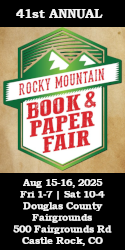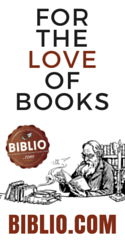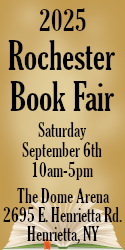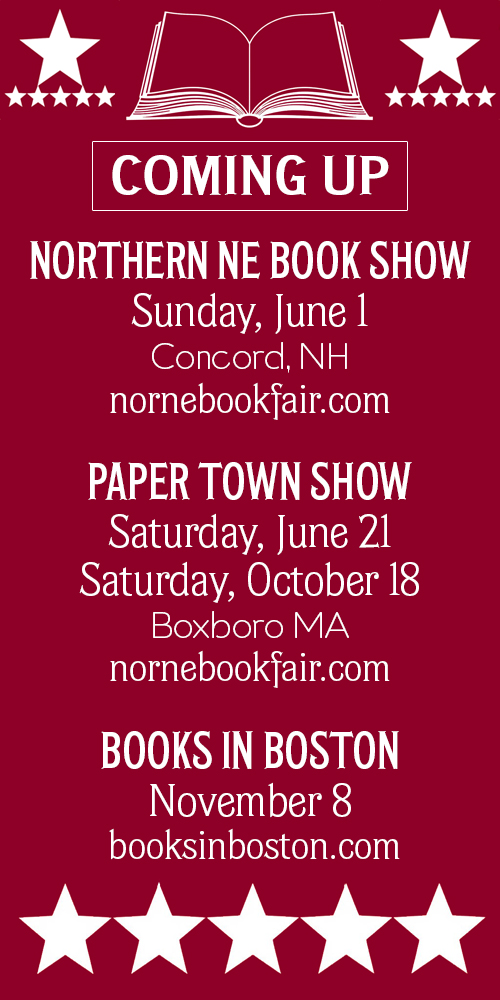Books & Ben
Probably the most coveted pictures of an American from the Revolutionary Era are those from the U.S. Bureau of Engraving and Printing known in modern jargon as Big Benjamins. Who couldn’t admire a stack of Big Benjamins with “Benjamin Franklin’s avuncular portrait beaming” as Lawrence Block noted in a 2001 Matthew Scudder novel. A skilled printer, the Franklin featured on $100 bills would no doubt admire the workmanship while marveling that each bill costs almost two cents to print. In his day, a penny was worth considerably more than now. My hunch is the wise and cheerful Benjamin would welcome the tribute of adorning currency since in the guise of Poor Richard Saunders, Philom… he noted “There are three faithful friends — an old wife, an old dog and ready money.”
On 30 May 1901 a Hall of Fame for Great Americans, the country’s first, was dedicated at University Heights in the Bronx and among the first group of 29 chosen in 1900 from over a thousand candidates was, predictably, Benjamin Franklin. He received 94 out of 97 votes, three more than Jefferson, two less than Lincoln, three less than Washington. In the initial group, Franklin was ranked with statesmen. He could just as aptly have been among Authors, Educators, Scientists, Inventors, Businessmen, or even Musicians as creator of the glass harmonica.
My impulse is to put Franklin in the World Hall of Fame as a Bookman. He helped Thomas Jefferson draft the Declaration of Independence, pointing out later that it “only gives people the right to pursue happiness. You have to catch it yourself.” Books clearly delivered immense happiness to Benjamin Franklin who pursued, wrote, published, accummulated, preserved, and loved them in the course of his long and remarkably prolific life.
The Pursuit of Old Bens
During the mid-1970s doing research for a Bicentennial tribute to this polymathic Founding Father (published in 1975 as Franklin — Revolutionary Scientist), I fished for material in many libraries and inevitably gravitated to New York’s Book Row, still alive and reasonably well in those days. One stop was Dauber and Pine on Fifth Avenue. There Murray Dauber heard my plea for elusive items, and I remember him sighing with unfeigned affection, “Ah, Old Ben. There were nice sets of Old Ben around the turn of the century. We don’t see them often, of course.”
Commenorating the country’s 200th birthday in the company of Ben Franklin, I assembled an extensive library focusing on America’s first citizen of the world. Book Row was my prime source for useful books and relevant prints. For instance, at a treasure-laden book cave on Fourth Avenue near Astor Place, after patiently digging through a gallimaufry of old prints, I found a Franklin drawing adapted from C.N. Cochin’s 1777 portrait painted in France. The chubby, slyly grinning Franklin wearing spectacles and a fur cap seemed friendly and open to merry conversation about science, people, books, or what have you. The drawing left the bookstore with me and eventually became an amiable illustration for the dust jacket of my Franklin tribute for the Bicentennial.
He was, I’ve no doubt whatever, the happiest Founding Father. When we consider the men who launched America by transforming discontented Colonies into States under a Federal Constitution, isn’t he the one we can most easily imagine with a twinkle in his eye. He was a light-hearted philosopher, not a deadpan Pharisee. Franklin’s early biographer Mason Weems (famous for making up that cherry tree story about young George), claimed Ben could “charm alike the lightnings and the ladies.” He was America’s first indisputably world-famous, all-purpose, multifaceted great man, maybe our last one too. His enthusiasm for life never flagged; American enthusiasm for Franklin was strong when he died on April 17, 1790 and has grown steadily through the years.
Has anyone matched Franklin in bold and wide-ranging versatility: author, almanac maker, library builder, chess player, co-drafter of a Declaration of Independence, participant in the Constitutional Convention, statesman, tradesman, printer, philosopher, humanist, scientist, phrasemaker, Parisian, politician, philanderer, inventor, patriot, pragmatist, philanthropist, pseudepigrapher, humorist, strategist, negotiator, character in fiction, and so on. He invented a stove, a musical instrument, the lightning rod, bifocals, a wooden “machine” he called his Long Arm to remove books from high shelves. He helped invent a new country nervously dedicated to liberty for individuals and expressed the belief that this invention was the hope of mankind’s future. What he wrote in 1759, “They that can give up essential liberty to obtain a little temporary safety deserve neither liberty nor safety,” and in 1783, “There never was a good war, or a bad peace,” are no less urgently relevant in the 21st century than they were in the 18th century.
He was also a devotee of Madeira wine and allegedly possessed a fine singing voice. All of these things describe our Ben-of-all-trades and make up the complex, composite character who often simply signed letters “B Franklin.” He seemed to successfully juggle a dozen careers at once and still have ample time for merriment and chess at night with Parisian ladies. “If you would not be forgotten,” he observed at age 32 in 1738, “either write things worth reading, or do things worth the writing.”
He was convinced that works are better than wishes and that words are no substitute for action. His public actions on behalf of the Colonies and then the independent young nation are crucial historical elements of the American story. He started America’s first subscription library, the academy that became the University of Pennsylvania, the American Philosophical Society, and a printing and bookselling shop that made books and journals available so his countrymen could follow Poor Richard’s advice to “read much.”
A writer from childhood on, his pen made him a peer of Thomas Paine and others who helped “write” the Revolution. John Adams contended that before bullets flew American independence began in “the minds and hearts of the people.” Those minds and hearts were primed by the writings, publications, and ideas of Franklin and the contemporary writers he encouraged and influenced. It was Franklin at London who inspired Thomas Paine to leave England and join the struggle for liberty in America.
Most books of quotations today include Ben Franklin on a variety of topics with excerpts from the classic Autobiography to his many letters of careful yet tongue-in-cheek counsel such as that contained in his Advice to a Young Man on the Choice of a Mistress. He called marriage a “proper remedy” for a young man’s “violent natural inclinations,” and once he mused, “Nothing gives an author so much pleasure as to find his works respectfully quoted by other learmed authors.
Typesetting and Print Shop University
His formal education in a Boston grammar school ended after less than two years. He went to work at ten in his family’s candle and soap business. “I dislik’d the trade,” he wrote and must have made this clear to his father Josiah Franklin who benefited his son, the country, future readers, and all of us by apprenticing Ben at age twelve in his brother James’s Boston print shop.
As Ishmael reported in Moby Dick, “a whale-ship was my Yale College and my Harvard,” and so James’s print shop served Ben. Printing nourished his “bookish inclination” as he eagerly read everything set in type and printed there. Through the shop he met kindred spirits who lived to read and read to live. Some owned books, and he began borrowing them to feed his perpetual curiosity and a never satiated appetite for learning. Work in the print shop and the reading it stimulated gave Franklin momentum for an education second to few in the eighteenth century. Indeed, for book-loving and why-asking Ben, the print shop was a tuition-free undergraduate and graduate school. His modest earnings as an apprentice enabled him to start acquiring books of his own.
Print shop reading inspired Franklin to write. He used the name Mrs. Silence Dogood as a byline for a clever series of moral and satirical letters and he relished hearing his brother and others speculate about the unknown author. That early success made him a versatile, valuable, often scandalous practitioner of pseudepigraphy, signing made-up names on pamphlets and letters to editors (including himself). As “Busy-Body” in 1729 he indulged “the Itch of Scribbling” with essays in The American Weekly Mercury, one a timely plea for a paper currency to foster economic growth. As “Fart-Hing” in 1781, for the Royal Academy, with tongue-in-cheek gravity he shared scent-iments on “Wind” of the flatulence genre. Pseudonymous masks removed, these and other philosophical arguments — and merriment — fill the many volumes of his collected works.
A compulsive writer for more than six decades, he employed dozens of pseudonyms to speak his mind and conceal his identity. The Almanacks made Poor Richard as familiar as his creator. At 84 with the pen name Historicus, he published an attack on slavery in The Federal Gazette, (March 25, 1790). Fun, not fear of exposure, was generally behind the concealment. On controversial matters he made his own opinion clear. In 1789, as President of the Pennsylvania Society for Promoting the Abolition of Slavery, and the Relief of Free Negroes Unlawfully Held in Bondage he signed a strong statement calling slavery “an attrocious debasement of human nature,”
We owe much to James Franklin both for Ben’s print shop job and, in 1721, for starting The New-England Courant, which facilitated Ben’s precocious start in journalism. Yet long before Orwell, he had too much of being watched and ordered by Big Brother to suit his liberty-loving spirit: “Tho’ a Brother, he considered himself as my Master.” So years before his indenture commitment would be satisfied at 21, 17-year old Ben took off in 1723 aboard a ship for New York. Excessive big brothering made Ben a runaway, but pushy James had equipped him with the printing and writing skills that would help Ben, and ultimately the country, to prosper.
To finance his contract-breaking migration south, he “sold some of my books.” Books opened Ben’s eyes to the world beyond Boston, and selling his books allowed him to venture into that world. A pattern was set. Thenceforward books would serve him as essential catalysts for progress, as sources of information and inspiration, as vital tools for the edification of himself and others.
His intention was to take a print shop job in New York. In the Autobiography, he wrote, “I offer’d my Services to the Printer of the Place, old Mr. Wm. Bradford.” Bradford had been a leading printer there since 1693. In an era when printers were often publishers, Bradford, trained in London, published books and pamphlets first at Philadelphia and later New York. His shop may have produced the first book printed in New York according to Burrows and Wallace in Gotham (1999). The youth was well aware it would be an honor to work at Bradford’s Sign of the Bible shop in lower Manhattan (not far from the World Trade Center neighborhood).
William Bradford had no opening — a fact with notable impact on Franklin, Colonial affairs, the entire future of America, and this “Ben and Books” homily. Bradford advised Ben to seek a job with his son Andrew, a printer in Philadelphia.
He crossed by boat to Perth Amboy, New Jersey and walked to Philadelphia where he arrived two days later, October 6, 1723: “I was dirty from my journey…I knew no soul, nor where to look for lodging…my whole stock of cash consisted of a Dutch dollar and about a shilling in copper.” He didn’t take a job with the younger Bradford. Instead , with William Bradford’s aid, he was hired at Samuel Keimer’s Printing House on Market Street and found lodging next door in the home of John Read, father of Deborah who eventually became his common-law, loyal and rather neglected wife. Thus capricious fortune made Philadelphia the city where the fugitive from sibling tyranny could establish himself and make his mark.
The Junto and the Library
In a Silence Dogood letter, Ben saluted books as “the best of company.” And for him, diligent readers were the best companions. At Philadelphia he promptly contacted other “lovers of reading” to exchange ideas and books and in his travels, he made certain that books were always readily available. He sailed to London late in 1724 where he worked as a printer and lived next to a bookshop. The proprietor, John Wilcox, “had an immense collection of secondhand books,” wrote Franklin. They became friends and Wilcox agreed “I might take, read and return any of his books. This I esteem’d a great advantage.” During eighteen months in London his expenditures mainly were “in seeing plays and in books.”
He returned to Philadelphia in 1726 and focused on establishing his own printing and publishing business while expanding his public activities. Philadelphia historian Russell Weigley wrote, “A new era was coming. Historians often regard 1726 as marking the beginning of the change, for in that year Benjamin Franklin returned to the city from his first visit to England, still an obscure printer but destined to become the civic leader of Philadelphia and to guide his city into new paths of intellectual achievement.”
In 1729 Franklin bought The Pennsylvania Gazette from its founder Samuel Keimer. In the years following he used the Gazette as an outlet for his own writings and made it the most influential newspaper in the Colonies. He established his shop as a major publisher with some of the first classics printed in America. The Franklin press out put ranged from almanacs to books on science that fascinated him and aroused his analytical curiosity.
Launching new enterprises was a Franklin addiction. He showed a lasting affinity for start-ups of his own devising — whether movements, clubs, institutions, or nations. He shared credit with a few collaborators (e.g. Washington, Adams, Jefferson) for the start-up that became the U.S.A. But in 1727, the Junto was an exclusive Ben Franklin brainchild. He set it in motion soon after returning from England brimful of ambition and intellectually hot to trot.
The Junto was a club of young Philadelphians, Franklin’s “ingenious acquaintance,” recruited by him to talk about their reading and to strive for mutual improvement. They met Friday evenings and the founder recalled the club as “the best school of philosophy, morals and politics that then existed in the province.” He drew up the rules obliging each member to prepare Queries for discussion and to deliver an essay every quarter “on any subject.” After a Query was covered, there was a refreshment pause when “one might fill and drink a glass of wine.” Franklin exulted in the meetings, the talks, the pauses. Queries for the next Friday were announced in advance, which provoked preparatory reading by the group on many subjects. “We acquired better habits of conversation, everything being studied in our rules which might prevent our disgusting each other.”
The Queries often involved natural philosophy (science). Those Junto probings helped lead to Franklin’s scientific speculations and later fame as a scientist. Issac Asimov acknowledged his contributions in various technical fields, especially electricity. Franklin’s 1751 report on what he and his associates discovered, Experiments and Observations on Electricity Made at Philadelphia in America, has been called the most important book by an American in the eighteenth century. An enthusiastic reviewer praised the “luminous simplicity” of the writing.
The American Philosophical Society resulted from Franklin’s realization that the Junto’s commitment to reading and sharing ideas could be expanded to encourage learning throughout the Colonies. To that end he wrote and circulated A Proposal for Promoting Useful Knowledge. The Society began with Franklin as secretary, a position his proposal made responsible for the burdens of organization and administration. The Society grew slowly due to slow transport, communication delays, distances between communities, and a Revolution. Yet as did most of his public innovations, the Society survived. Whatever he touched tended to stay alive and grow.
Availabilty of books was a Junto necessity. So Franklin arranged for members to bring their books together at the meeting place. In a common library, they could share books “which would be nearly as beneficial as if each owned the whole.” But he soon learned the arrangement had serious drawbacks. Nervous owners took a protective interest in how their books were handled, and some disliked being separated from their books. Who among us isn’t instantly sympathetic? The members soon took back their books, and Franklin took away a basic insight. Since sharing privately owned books didn’t work, why not make them publicly owned.
Book needs energized his first public project in 1731. He drew up the “Instrument of Association” and led his friends in creating a library financed by subscribers. “This was the mother of all the North American subscription libraries now so numerous,” he wrote. The idea had wings, and that initial library would spawn many others. Franklin’s library started with 45 books stressing science, history, philosophy and other serious disciplines, and a book order was dispatched to England on March 31, 1732. Franklin made certain his library acquired the books he needed. [Let readers who wouldn’t do the same, cast the first criticism. When I was a U.S. Navy ship’s librarian, I felt no qualms of guilt in getting books I wanted.]
Franklin selected Louis Timothée as the librarian, who made a room available to house the books. Books could be borrowed only by subscribers, but the rules permitted “any civil gentleman to peruse the books of the library in the library-room.” The library’s founder predictably was its number one customer. “This library afforded me the means of improvement by constant study, for which I set apart an hour or two each day…Reading was the only amusement I allow’d myself,” wrote America’s prototype of the self-made man. The library, as he fully intended, also served many others. “Reading became fashionable,” he declared, “Our people having no public amusements to divert their attention from study became better acquainted with books.”
In 1742 the greatly enlarged library became the Library Company of Philadelphia, destined to be a permanent American institution. In 1771, recalling the libraries his experiment inspired, Franlin ended Part I of his Autobiography:“These libraries have impov’d the general conversation of the Americans, made the common tradesmen and farmers as intelligent as most gentlemen from other countries, and perhaps have contributed in some degree to the stand so generally made throughout the Colonies in defence of their privileges.”
Books and Building Not Bells
In a letter Franklin once mused about being preserved in a cask of Madeira and “recalled to life” during a later century to check on his country. How might he judge America today? Not probably with satisfaction if he saw an advertisement library foes sponsored at Winters, California in 2002 with these arguments: “People like to watch things on television and video. We must understand that libraries are going the way of the local milkman, cheap gas, and small towns. If the friends of the library want a new library, fine. Let them spend their own money and build it themselves.” Winters obviously needs a new Benjamin Franklin. Maybe a worldwide check of old Madeira kegs is indicated on behalf of places where books are besieged by tube-addicted Yahoos.
Has a Franklin revisit occurred already? Rumors abound concerning Ben’s reappearance. Herman Melville resurrected Franklin as a clever character in Israel Potter, Mystery readers know of Franklin’s talent for solving murders from whodunits by Robert Lee Hall. Furthermore, allegedly Franklin has occasionally been seen among the books at the Philadelphia Library he founded and reportedly raps with a cane those who misbehave in the stacks. That frankly doesn’t sound like Franklin. Physical chastisement wasn’t his style. Likelier hearsay, because it fits his character, are the unverified accounts that a Franklin statue leaves its pedestal at night, inspects his library and city, then perches on a fire plug and drinks a mug of beer. Here’s hoping that’s not merely a nocturnal hallucination by an Elwood P. Dowd type with a Franklin fixation.
In addition to the Library Company, Franklin assembled several personal libraries during a long life and his frequent extended tours of duty in Europe representing America. In the crucial enterprise of acquiring and housing books, age wasn’t a factor. At the age of eighty he needed more space for books at his Market Street house in Philadelphia. The answer was a new library with sufficient shelving for 4,000 volumes. With a little imagination we can see him, the bifocals he invented in place, writing to his sister Jane Mecom: “I hardly know how to justify building a library at an age that will so soon oblige me to quit it; but we are apt to forget that we are grown old, and building is an amusement.”
My favorite Books and Ben story comes from 1785 when a Massachusetts town proposed naming itself Franklin. Notifying him of the honor, town officials suggested he acknowledge by donating a new church bell. They received books, but no bell, along with Franklin’s advice, “Sense being preferable to sound,” he wrote, the books might be “the commencement of a little parochial library for the use of a society of intelligent, respectable farmers.” No matter if some citizens were miffed about not getting a bell, Franklin was true to his belief that books preserve the past and fuel the future. And he made certain if he ever found himself in that Massachusetts town he’d be able to find a good book to read, sense being preferable to sound. Hear, hear!
Roy Meador, a writer and book collector in Ann Arbor, Michigan, is the coauthor with Marvin Mondlin of “Book Row”, their history of the bookshops that once flourished on and around Manhattan’s Fourth Avenue.


























